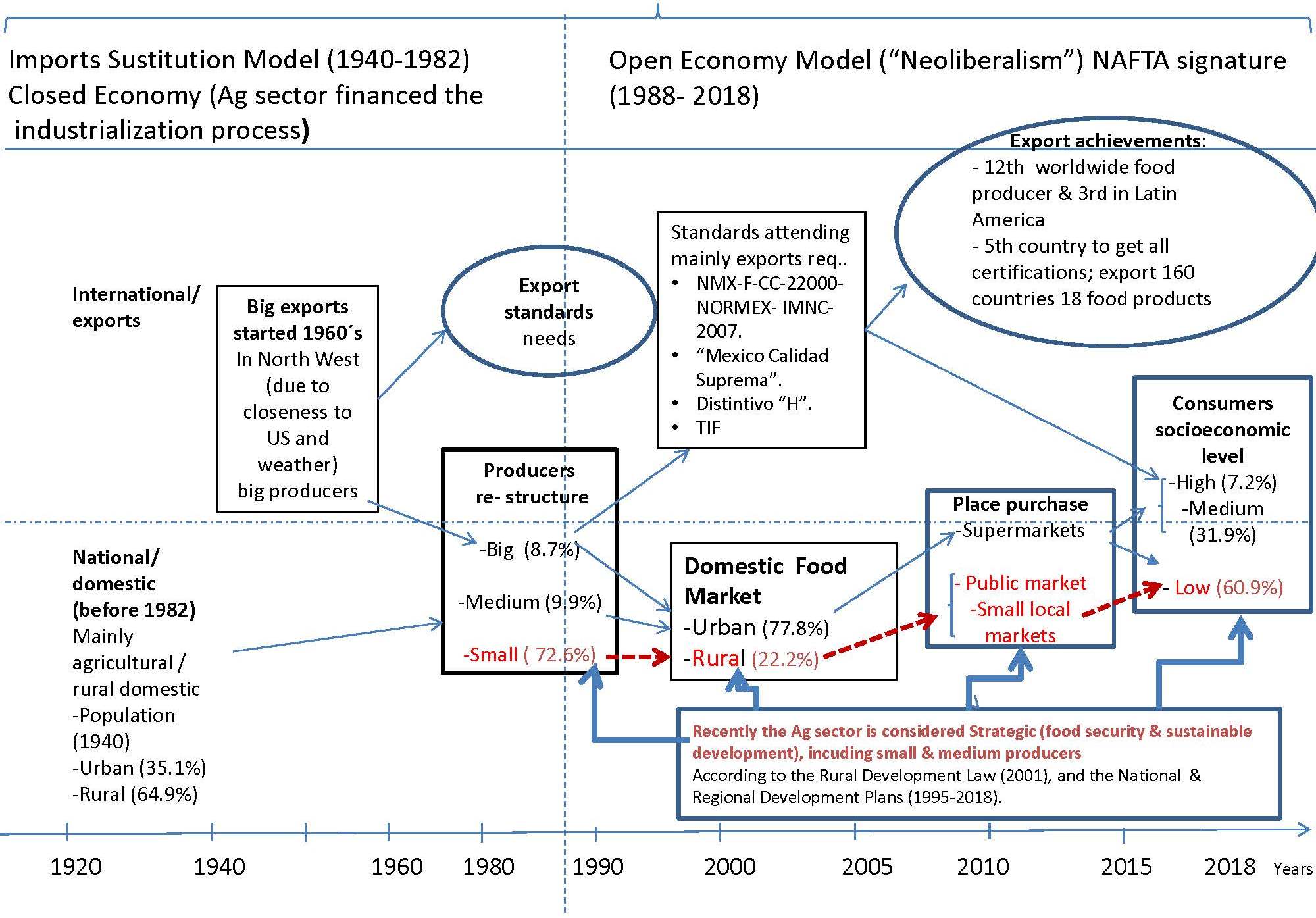Taking four of the United Nations Development Goals as reference, this overview describes the need to see from a systemic perspective, the food certifications programs along the food chain in Mexico as today food certifications are voluntary. Using secondary data, the main objectives were: a) there is a fall short in food safety policies and those federal agencies responsible for food safety, to guarantee safe food along the whole domestic food chain, especially in that for low income players; b) the amount of the Mexican Federal Budget Expenses devoted to safety food issues is really low, considering the health, well- being, and food security consequences; and c) due the structural heterogeneity of the Mexican food market, there is a lack of coordination in food regulations along all agents of the food supply chain, bringing to alternate informal markets that put at risk peoples´ health, increasing poverty and inequalities. According to this exercise, only 0.7- 8.7% of producers, 12.5% of supermarkets as well as 42.8% of restaurants would have some type of certifications. Public policies must attend this issue in order to improve food safety and security for the whole population, reducing inequalities, poverty and ensuring them a healthy live.

